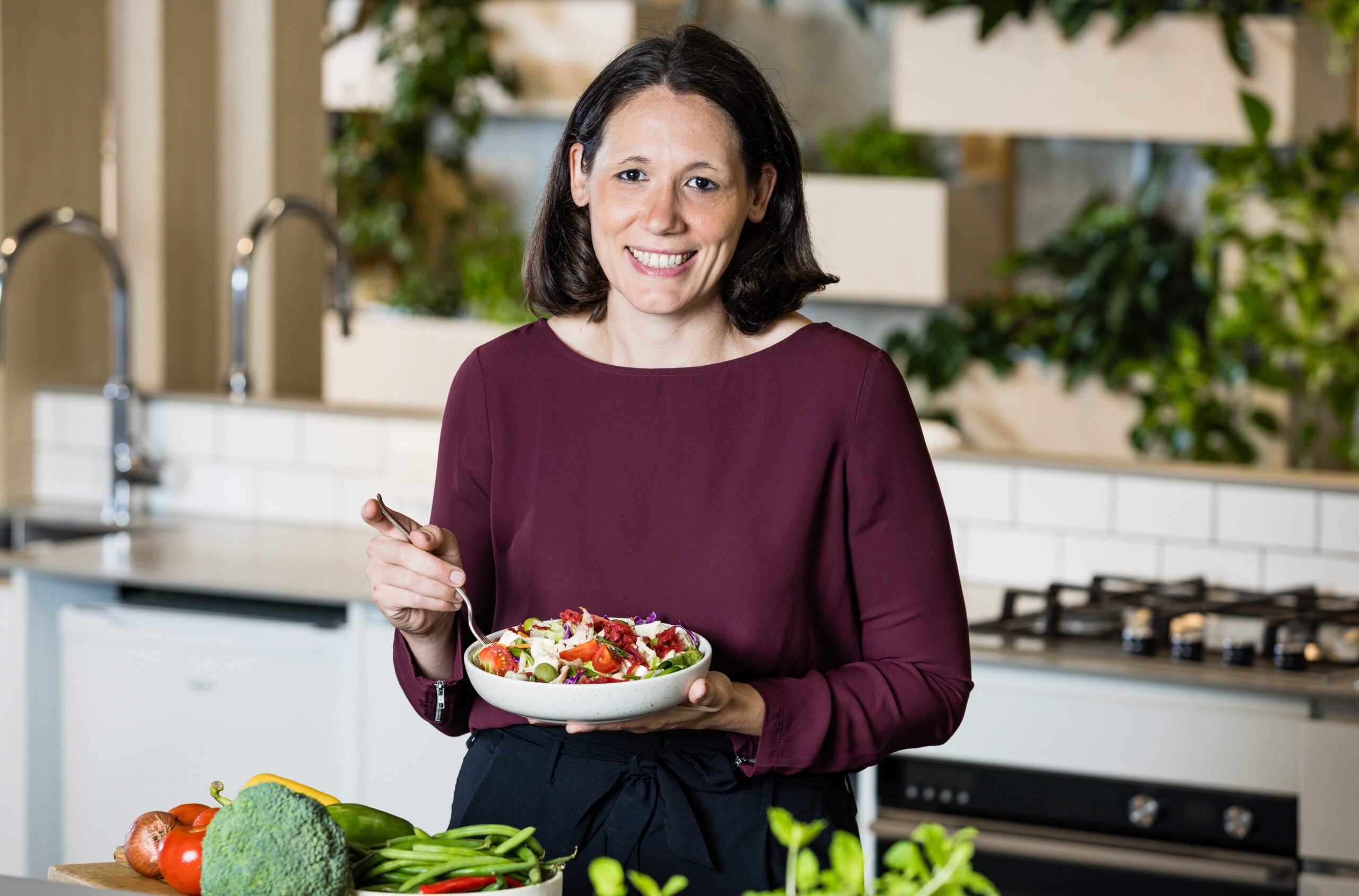
A healthy lifestyle is all about building habits that become part of your everyday routine. A single meal or workout won’t make a difference – but a consistent approach will. Follow our tips to help you prioritise your health for the year ahead.
Over the past year, we’ve spent more time at home and more time online than ever before. It’s hard to know how this has impacted on our health. Some people have found more time to cook meals and less time stuck in traffic while others may have found life much more stressful than before.
It’s likely that many old habits have changed, and new habits have been formed. Whatever your situation, the New Year is a good time to reset, refresh and focus on the year ahead.
Why set a health goal?
Healthy habits such as practising mindfulness, getting enough sleep, regular physical activity and eating plenty of nourishing foods can help you to get the most out of every day. When these habits are performed consistently, they positively impact on our work, relationships, and mental and physical health.
Setting a health goal can help you focus your attention on the things that are important to you. Once you have a goal, it becomes easier to think about the smaller actions and behaviours you need to put in place to build healthier habits.
4 steps to build a new healthy habit1
Follow these four steps to create habits that become your new ‘normal’.
The measure of success for a new healthy habit is when you realise it has become the default and no longer needs as much effort or deliberation.
1. Decide on a goal that you want to achieve for your health.
Write your goal in your phone or diary. When you write it down your goal becomes a record of your commitment but it also helps you to define it clearly. The more precise the better. Writing it down also lets your brain know that it’s important to you.
Be SMART with your goals: Specific, Measurable, Achievable, Relevant and Time-related.
For example, instead of ‘I want to exercise more’, try to be precise with something more like, ‘I want to walk twice weekly on my lunch break and build up my fitness to walk Round the Bays in March 2022’.
2. Choose a simple action that will get you towards your goal which you can do on a daily or weekly basis.
Here are some ideas of simple actions to inspire you:
- Fill your drink bottle at the start of each day.
- Plan a meat-free meal once a week.
- Serve half a plate of vegetables at dinner.
- Snack on vegetables between meals.
- Go for a 20-minute walk before lunch.
- Try a new recipe each week.
- Meal prep lunches for the week on Sundays.
- Turn off devices 1 hour before bed.
- Listen to a podcast once a week.
- Video call a friend or family member once a fortnight.
3. Plan when and where you will do your chosen action. Be consistent – choose a time and place that is already part of your daily routine.
Consider adding small changes to your existing habits. ‘Habit-stacking’ can help you start something new. For example, when you usually collect the mail add in a 10-minute walk.
3. Every time you encounter your chosen time and place, consistently do the action.
It will get easier with time, and within 10 weeks you should find you are doing it automatically without even having to think about it.
Focus on building one new habit at a time. Once you’re comfortable with your new habit, you’ll have the confidence to tackle the next one.
Tips to help you create long-lasting healthy habits
Your goal doesn’t have to be medical
There are lots of different ways to prioritise your health and wellbeing. This could be as simple as planning to finish work at a reasonable time, connecting with people more regularly or investing time into learning a new skill.
Focus on the positive
Frame your goal positively without restricting the things you enjoy in life. For example, more movement on the weekends or eating more fruit during the day. When we restrict certain foods or alcohol, we end up craving them even more.
Choose new behaviours (for example, drinking more water) rather than giving up an existing behaviour (for example, don’t drink alcohol). You can’t form a habit for not doing something1.
Find a cue in your day
A cue is something that consistently fits into an existing daily or weekly routine (for example, ‘When I go on my lunch break’ or ‘After I finish my morning coffee’). This provides a specific and stable starting point to build a habit1.
Start small
Start with one small change at a time. A small amount of physical activity or an extra half an hour of sleep is more beneficial than nothing at all. Smaller, simpler actions will become habitual more quickly1.
Even the smallest actions like 5 minutes of mindfulness or walking the kids to school can create change. If you try to make too many changes at once, you can easily get overwhelmed and it may be easier to give up.
Break down big goals
If your goal is big, then break it down into smaller steps that can be achieved relatively quickly. This can lead to a sense of achievement and help to keep you focused, as well as prevent you from becoming overwhelmed by large goals.
Be kind to yourself.
The last couple of years have been gruelling for many of us from a financial, physical and emotional perspective. Some habits may take longer or require more effort to form.
There will be ups and downs, times of sickness and holidays, busy periods and time when your motivation fluctuates. Don’t be too hard on yourself. The more you invest into building a habit – the easier it will be to get going again quickly. Here’s more advice on making lifestyle changes stick.
Get people around you on board.
Tell your kids, partner, whānau and/or health professional about your goal. By saying it out loud you are mentally preparing yourself to do something about it and letting those around you know that you’ll need their support.
Stick at it
On average it can take 66 days (~10 weeks) for a new behaviour to become automatic1. If you plan to wake up an hour earlier each day to go for a jog, the first month will be the most difficult. But if you can stick with it for a month, it will become much easier after that.
What you do most of the time is good enough
It takes time to develop and keep healthy habits.
Instead of striving for perfection, one of the best things you can do is accept that there will be times where you won’t get enough sleep, you’ll over-eat or find it tricky to do any exercise.
When you look at the bigger picture, one day, one week or a month of your whole life is nothing. What’s most important is what you do most of the time and learning from the times where things didn’t go as planned. We’re all human after all and life is there to be enjoyed.
References


